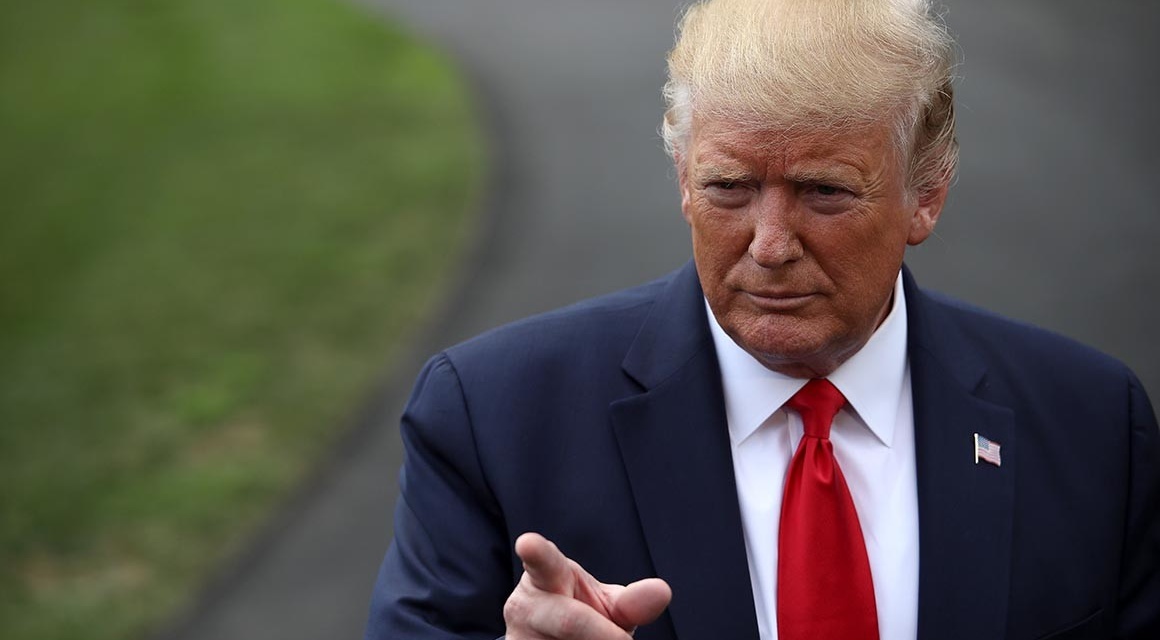Donald Trump announces a two-week delay in the latest phase of his trade war with China, as Beijing signaled that it might resume purchases of US agricultural products.
The Trump Administration was scheduled to complete its imposition of tariffs on Chinese imports on October 1, imposing and raising tariffs across all $600 billion of Beijing’s goods.
Trump rolled out the first tariffs in June and September 2018, charging 10% on $250 billion of China’s products. This May, trying to force Chinese concessions, Trump raised the tariff from 10% to 25%, scuppering trade talks in Washington. He announced that the remaining $350 billion would face a 15% charge.
But China refused to buckle to American demands on issues such as intellectual property, with President Xi Jinping invoking the “Long March” of the Communist Party against Nationalist rule in the 1920s and 1930s. So via Twitter, Trump ramped up the planned tariffs this summer.
Duties were imposed on $112 billion of the remaining $350 billion, with the rest to be charged next month and in December. From October 1, duties were to be raised from 25% to 30% on the first $250 billion.
A Step Back from the War?
On Wednesday, Trump told reporters that he would postpone the October 1 escalation, noting that the date is the 70th anniversary of the founding of the People’s Republic of China.
China then reportedly made its first large purchase in months of American soybeans. Jim Sutter, the chief executive of the US Soybean Export Council, said the Chinese purchase was 600,000 to 1 million metric tons on 12 to 20 cargo ships for shipment in October.
American soybean exports collapsed by more than 90% after Trump launched the trade war last year, threatening the future of many farmers in the US Midwest.
China’s Ministry of Commerce said companies are inquiring about about resuming purchases of American agricultural products.
“Soybeans and pork are all within the scope of inquiry,” said spokesman Gao Feng. “I hope that China and the United States will move in the same direction and create favorable conditions for consultations.”
Trump — or his staff — exulted on his Twitter account on Thursday morning, “It is expected that China will be buying large amounts of our agricultural products!”
A Split Administration
Trump’s two-week delay also means that the sweeping rise in tariffs will not take effect until after US and Chinese negotiators resume talks in early October.
The Trump Administration is reportedly split over tactics. Treasury Secretary Steven Mnuchin and Larry Kudlow, the head of the National Economic Council, are said to be concerned over financial markets shaken by the trade war and by signals of an economic downturn. Other advisors are worried that this could imperil Trump’s effort for re-election.
White House sources said these officials hope to forestall the new and escalated tariffs in October and December. One source expressed the hope that this would bring Chinese compromise on intellectual property rights.
But some Administration officials, including Trump’s son-in-law Jared Kushner, argue that a China deal is not necessary to win votes. They argue that the Administration can succeed by passage of the revised North American Free Trade Agreement and an agreement with Japan.
The split was evident in the responses of Trump’s advisors on Thursday. Mnuchin said Trump’s two-week delay was a “good gesture” in response to request from Chinese Vice Premier Liu He: “The optics of us raising the tariffs on Oct. 1, which is their 70th anniversary, caused them grave concern on the symbolism.”
However, senior White House economic advisor Peter Navarro, a hardliner in the trade war, played down Trump’s step: “It’s a small thing in the scheme of things. The Chinese are paying the tariffs anyway.”
In addition to seeking Chinese protections for US intellectual property and opening of markets to US companies and products, the Administration is seeking structural changes such as Chinese curbs on the influence of state-owned enterprises.
China is not conceding on those issues but instead has proposed more free trade zones with open financial markets and access for American firms.
White House advisor Navarro accused the Chinese of economic aggression and assailed Republican legislators worried about the tariffs: “[They’re] waving the white flag, not the American flag.”

